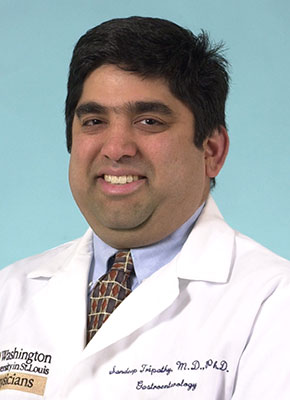
Bio
The gastrointestinal (GI) tract is continuously presented with pathogenic and non-pathogenic stimuli. Determining which stimuli are harmful and require removal is critical to the maintenance of the health of an individual. The innate immune response plays a critical role in the early control of invading pathogens. Through the use of a variety of cells, cytokines and receptors, the GI tract has developed multiple mechanisms to identify and remove harmful pathogens.
One major cell type involved in innate immunity is the natural killer (NK) cell. These cells are believed to be one of the first lines of defense against viral and tumor threats. NK cells express a variety of both activating and inhibitory receptors on their cell surface. The signals leading to the activation of these cells is still poorly understood. My research involves studying the activation of NK cells and the role that these cells play in controlling viral infection. As a model, we are studying the response of NK cells to murine cytomegalovirus (MCMV) infected cells. I am currently evaluating the role of the MCMV- encoded protein m157 during the NK cell response to MCMV infection. A second area of interest is in evaluating the activation and function of hepatic NK cells. Interestingly, NK cells make up a high percentage of lymphocytes in the liver. The role of NK cells in the liver is still also unclear though some data suggests that they play a role in control of viral infection of and tumor metastases to the liver. A better understanding of the activation of NK cells could aid in the development of therapeutics that exploit NK cells to treat viral and malignant diseases of the liver and GI tract.
Education
- Fellowship: Washington University, St. Louis, MO (2004)
- Residency: Barnes-Jewish Hospital, St. Louis, MO (2001)
- MD: University of Chicago, Chicago, IL (1998)
- PhD: University of Chicago, Chicago, IL (1998)
Specialties
General Gastroenterology, Research